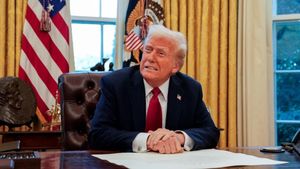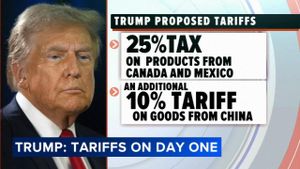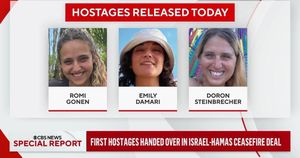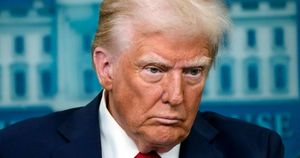North Korean Troops Withdrawn From Ukraine's Front Line
Special reports indicate significant developments along the Russia-Ukraine conflict front, with North Korean troops reportedly withdrawing from their positions near Kursk following considerable casualties during clashes with Ukrainian forces. Observations from Ukrainian military sources noted they had not seen North Korean soldiers on the front lines for several weeks as of late January 2025, leading to speculation about the reasons behind their absence.
The withdrawal, likely prompted by heavy losses, has raised questions about the effectiveness of North Korean troops involved. Initial reports indicated around 10,000 to 12,000 North Korean soldiers were deployed to support Russian forces around the time of their initial engagement. Ukrainian officials mentioned staggering numbers of casualties, with estimates indicating as many as 1,000 North Korean troops may have been killed within just three months of fighting.
Colonel Oleksandr Kindratenko, spokesperson for Ukraine’s Special Operations Forces, commented on the situation, stating, "These are standard measures—rotation due to large casualties." He confirmed there had been no detectable activity or military confrontations involving North Korean forces over the preceding weeks, reinforcing the interpretation of their withdrawal as connected to significant losses endured on the battlefield.
Military experts have raised concerns about the tactics employed by North Korean soldiers. The consensus suggests those forces were primarily used for frontal assaults, often referred to as human-wave attacks. These tactics left them vulnerable to being targeted by Ukrainian drone operations, contributing to their high casualty rates. Analysis from South Korean military intelligence highlighted the inadequacies of North Korean soldiers to cope with modern warfare scenarios, leading to their withdrawal from front line positions.
Despite the current absence, some military commanders expressed expectations of North Korean troops potentially returning to the front. Puls, a Ukrainian special forces commander, stated he believed, "I think they'll be back soon," putting forth the notion these troops might return to combat after recuperation or receiving additional training based on the lessons learned from their initial engagements.
The geopolitical dynamics surrounding the involvement of North Korean troops have also drawn scrutiny. Close ties between North Korea and Russia have been reasserted through formal agreements, with leaders from both countries committing to mutual defense pacts. The exchange of resources, including artillery support from North Korea to Russia, has set the stage for broader military collaboration, even as battlefield realities play out differently.
The ramifications of this troop withdrawal not only question the efficiency of joint operations between Russia and North Korea but also point to the challenges each country faces as they engage immutable forces ranging from technological advancements to changing strategies. The situation remains fluid as military experts continue to monitor developments, waiting to see what the next chapter holds for North Korean troops and their role within the continuing conflict.



